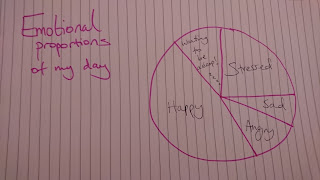Task 3a: Current Netoworks
Definition of 'Networking'
“A process that
fosters the exchange of information and ideas among individuals or groups that
share a common interest. Networking may fall into one of two categories -
social or business. In the latter category, one of the implicit objectives is
to form professional relationships that may boost one's future business and
employment prospects.” [1] (investopedia)
I currently
use websites such as Facebook, Twitter and Linkedin, but I recognise that my
current networks are fairly limited and that this is something I need to work
on. I have a couple of contacts who I can call on for jobs or tools or general
help, but I have not built up a vast network of contacts or industry friends.
This may be partly to do with moving into teaching where keeping up with the
current fashionable networks is less important and certainly the networks you
need change, but as a choreographer I have definitely dropped the ball. I could
definitely engage more in the choreographing world, find more new connections
and inspiration, even do some free work to get noticed. Many of the people I
trained with and my theatre friends have vast networks of contacts and websites
that keep them in the loop. Having good connections can get you into secret
auditions, score you some free tickets or even drinks with some famous people
in the industry, all of these can help you further your career. I believe that
the further you progress with your career the more important and useful these
networks are, it becomes more important to be in the know and up to date, more
important to know the right people and say the right things. It is interesting
that we can now network via social media, you can tweet your favourite
performer or share your work with an inspiration in your field, this is a while
new method of creating a career network.
But
why is networking important, how does it benefit us? Having a network can
benefit us is many ways from job opportunities to fame to just having someone
to talk who understands our networking can provide us with many opportunities. This
gives many people motives build strong networks. Most will build networks as
way of advancing in their career, the theatre industry can be being in the
right place at the right time, so networking can get to that place at the right
time. Networking can also be of use even if you’re already at the top of your
field, so many celebrities and theatre industry leaders have social media
accounts, this both aids their ability to achieve more fame and success but conversely
is also a way for the less revered to learn from their idols. Networking is
also a two way connection, you may be as useful to your network as your network
is to you, this provides a nice group environment to networking as everyone can
help each other.
My ideal network would
consist of many leading industry professionals, theatre companies and leading
performing arts schools. As a choreographer and teacher I want to be connected
to emerging young talent, the best performing spaces, inspirational performers
and helpful supporters. Many people use social media and online networking to
raise their profile or to raise money such as Kickstarter, this is a great way
to reach a wider network and a wider range of supporters. It is also important
to think of the way you present your online presence, if you are going to
network via Facebook, it is important to remember to remain professional and
not post anything that might lose you a contact or even a job. You no longer
even need an agent as most auditions are now posted on a variety of theatre
websites such as casting call pro and spotlight, networks created for you,
though they are also used by everyone else so it is not a very exclusive
network.
I definitely believe that
networking is both important and useful and that I certainly could get better
at it (and probably need to). As modern technology pushes ever forwards I
struggle to imagine the ways in which we may begin to network in the future.
[1] Investopedia “Networking”
online. Available from: http://www.investopedia.com/terms/n/networking.asp#ixzz3uEaM8fNt


